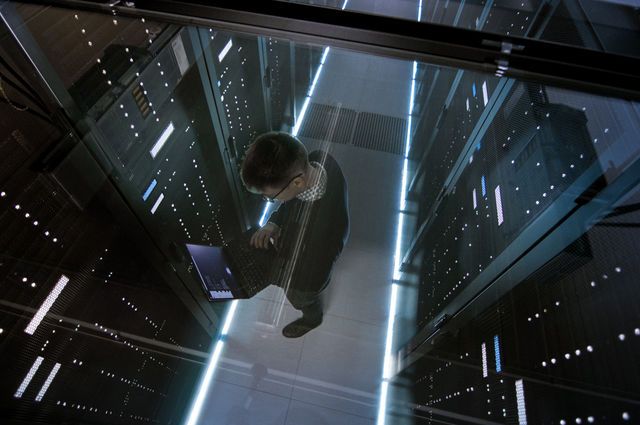What is one simple way tech is helping you improve guest experience or grow revenue?
8 experts shared their view
During the sixth edition of Mews Unfold, we heard a lot about automation, personalization, and finding new revenue streams. We spoke with speakers, suppliers, and attendees and asked them: What is one way technology is helping create better guest experiences or boost business performance?

This World Panel Viewpoint is sponsored by Mews
More information
The 2025 Mews Unfold Awards: Honoring Excellence in Hospitality
At Staypineapple, we use Mews across all of our properties and have started incorporating AI to help us better understand our guests before they arrive. We combine this with other data—like reviews and past preferences—to build a more complete picture of who is staying with us. This helps our team anticipate needs and plan for thoughtful touches that can enhance the experience.
But here is the important part: the data alone is not enough. What really matters is having team members who know how to use that information creatively. We hire for emotional intelligence and critical thinking, because those are the qualities that bring guest data to life. Our team members are the ones on the ground, delivering the actual experience. When empowered, they use the information to make meaningful decisions that surprise and delight.
One recent example: we had a regular guest who usually travels with her dog, but this time she came without it. Our general manager brought over the hotel’s house dog to the lobby so she could have a moment of puppy love. It was a small gesture, but it meant a lot and created a lasting memory.
Another time, a guest called in distressed—her car had broken down, and she was stuck with her kids. One of our team members called a local pizza place and had food and drinks delivered straight to the parking lot where she was waiting. That kind of thoughtful action is only possible when people are trusted to act on the data and empowered to show care.
Technology helps, but people make it powerful.
We focus on using technology to create seamless and personalised guest experiences while also improving performance. One example is how guests can easily add extras such as late checkout or breakfast directly from their phone at check-in. These options are tailored and supported by local partnerships, so guests feel cared for and connected to the community. On the revenue side, we have recently upgraded our revenue management system to include dynamic pricing based on real-time data, such as events happening in town. This allows us to adjust rates in advance and reduce no-shows by quickly reselling rooms when cancellations occur.
Technology plays an important role in reducing uncertainty and supporting daily decision-making for hoteliers. In today’s fast-changing world, systems that can pick up real-time signals from the market and turn them into actionable insights are essential. Whether in revenue management or broader operational tools, these technologies help hoteliers make more accurate decisions and run smoother, more efficient operations.
This also frees up time for staff to focus on what matters most: the guest experience. One example is Mews’ Smart Tips feature—an AI-powered tool that summarizes guest data into useful insights. These tips help hotel staff personalize conversations at check-in or check-out, making interactions feel more tailored and genuine. Whether it is knowing a guest always requests an early check-out or prefers a specific bottle of wine in the room, these details help create experiences that feel personal and memorable.
I do not believe in improving the guest experience directly. I believe in improving the employee experience first. At the corporate level, we are not the ones delivering hospitality—we support the people who do. If we build digital tools that employees actually enjoy using, they will use them. And as a result, the guest receives a better experience.
No guest will return just because the online check-in was great. But if that digital tool saves time for the receptionist, it frees them up to create memorable, personal moments. That is what guests remember. The guest experience is ultimately shaped by the employees. Our job is to support those employees so they can deliver true hospitality.
Data and technology play a key role in driving more profitable revenue. Today, technology helps connect the right guest with the right hotel, offer them the right room at the right rate, and guide them to book through the right channel. When these elements are aligned and the channel mix is optimized, hotels see real improvements in both revenue and profitability.
We see many of our customers shifting a significant share of bookings from third-party channels to direct ones, often gaining a seven to eight percent improvement. That shift, along with more personalized guest engagement, is leading to a return on investment of 25 to 30 times for some properties. It all comes down to using data to make better decisions and communicate with guests in a more meaningful way.
The hospitality industry has long relied on stitching together different systems, which often results in inefficient workflows and missed opportunities. Today, hotels have access to purpose-built, modern solutions at scale. With nearly 13,000 hotels using our tools daily, we gain insights into markets and consumer behavior across the globe, allowing hotels to operate more effectively and make smarter choices.
At the same time, we are seeing significant structural shifts. In the past, crises like SARS or the financial downturns were temporary. We would wait them out and return to the usual baseline. Now, cost pressures—from labor and energy to insurance and food—are much more persistent. Net operating income is under real strain.
That is why it is more important than ever for hotels to use technology strategically. Asset owners and management teams must maintain profitability so they can reinvest in their people and properties and keep travel inspiring and accessible. Technology is picking up pace, and while the industry may have been behind, this is the moment to catch up.
There is also a real advantage in working with software-as-a-service providers today. Twenty years ago, the system you bought stayed mostly the same. Now, when you choose a provider like ours, you benefit from constant updates and improvements. Whether it is marketing tools, messaging platforms, or guest feedback systems, we are always investing to make them better.
Events like Mews Unfold offer an essential chance to connect in person, learn what is happening in different regions, and ask hoteliers the key question: what are you struggling with today? These conversations are how we all improve together.
One simple example that recently impressed me was receiving a WhatsApp message allowing me to check in online. It was seamless and aligned with what many guests now expect. In fact, we know that around 63 percent of millennials prefer the option to check in online. It works well, but what really matters is understanding how these tools actually impact guest satisfaction. Are guests enjoying it? What are they saying about it?
I worked with a client who had implemented digital check-in quite early. They had great adoption numbers, but the sentiment in guest reviews about the check-in experience was surprisingly negative. It turned out that, although it was a UK-based hotel chain serving mostly domestic guests, the check-in process still required passport numbers—something not typically carried by locals and not legally needed. This created unnecessary friction. It showed that even when the technology is in place, you need to monitor and refine the guest journey to avoid unintended issues.
Technology like WhatsApp check-in is definitely enhancing the guest experience. But as an industry, hoteliers still need guidance on how and when to use these tools. For example, what is the right time to send a check-in message? Should it be 9 a.m. or 11 a.m.? Should it vary depending on whether the guest is traveling for business or leisure? We are close, but we are not yet at a point where we can say with confidence what always works and what does not. And that is part of what makes this time so exciting.
Technology is becoming more accessible for hotels of all sizes, and that is starting to show in the guest experience. One area where I see real improvement is in the use of chatbots. In the past, chatbot interactions were often frustrating and unhelpful, but with AI, even smaller properties can now offer intelligent bots trained on their own property data. As a result, guests are getting immediate, accurate answers—leading to a smoother experience and, in many cases, increased conversions.
Another area is the hotel website itself. Most guests are used to the fast, seamless booking experience on OTAs like Airbnb or Expedia, where information is clear and easy to compare. Historically, hotel websites have not always lived up to that standard. But now, high-quality, optimized websites are more affordable than ever. Hotels can embed booking engines like Mews directly on their site, keeping guests on the same domain and improving trust and speed. Features like side-by-side room comparisons and intuitive layouts make it easier for guests to find what they want and book with confidence. It is all part of delivering a great digital experience that matches modern expectations.
A major shift in hospitality sales is the move from lagging reports to real-time, actionable data. Instead of reviewing performance 30 days after the fact, teams now have access to the right information exactly when they need it—whether they are working at the front desk or handling group and event sales. This enables faster, more informed decisions.
For example, when sending out a group proposal, sales teams can instantly see the rate they offered to the same buyer in the past. With that insight at hand, they can make a conscious decision about pricing and strategy—streamlining the negotiation process and improving conversion rates. By using real-time data in the moment, hoteliers can better manage demand and drive more revenue.

This World Panel Viewpoint is sponsored by Mews
More information









